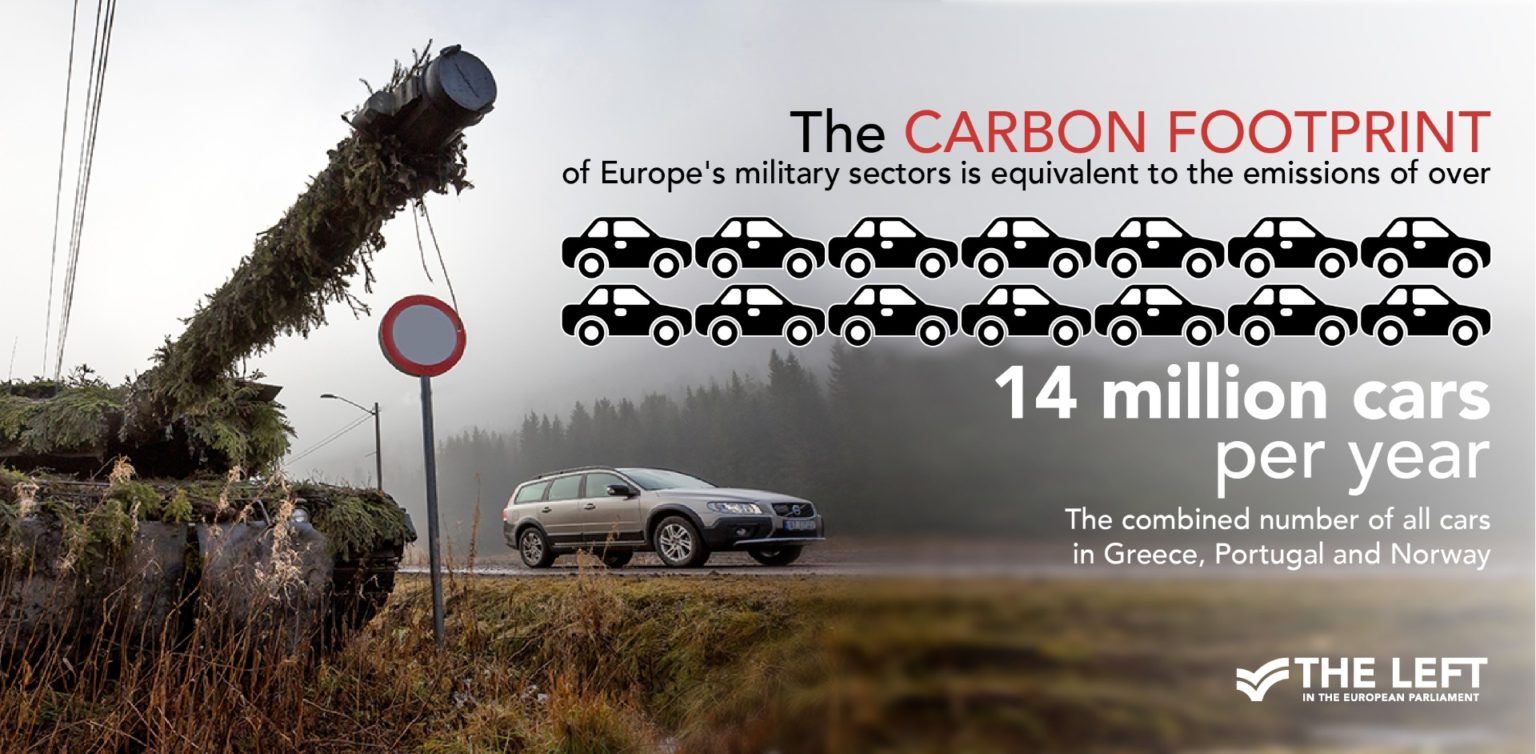A lack of reliable reporting
makes it hard to gauge enviro-policy
progress in EU militaries
Linsey Cottrell / Conflicts and Environment Observatory
(January 24, 2023) — “Military greening” is receiving growing attention, so in 2022, we examined the environmental policies of EU militaries, and how easy it was to measure performance against them.
Russia’s invasion of Ukraine has radically changed military priorities, and increased military spending, but with the triple planetary crises of climate change, biodiversity loss and pollution accelerating, it remains vital that efforts to reduce the environmental footprint of militarism increase.
This blog summarizes the key findings from the review and reflects on the need for improved transparency on military environmental policy and on its implementation.
EU Faces Growing Calls for a Cleaner Military
While the nature of military activities is such that they can never be “green”, in any meaningful sense of the word, policies can be in place to help minimise the environmental impact. We face a triple global crisis of climate change, pollution, and biodiversity loss, and all sectors of society must take meaningful and significant action. In spite of the conflict in Ukraine, this year’s Global Risks Report, again ranks climate change and ecosystem collapse as the top global risks over the next ten years.
Environmental policies and mitigation practices are already in place across EU militaries, but it is difficult to review or assess their effectiveness, especially since the military is commonly excluded from discussion in European environmental performance indicators.
The EU Strategic Compass, whilst outlining a commitment to substantially increase EU military and security spending, also highlighted the need to embed climate change and environmental considerations. However, at present it is unclear how effective military “greening” policies have been to date.
Progress is ongoing on the EU’s Climate Change and Defence Roadmap, which sets out short-, medium- and long-term measures for addressing the links between the military, climate change and environmental degradation. The Roadmap is due for an intermediate review in 2025, and includes an objective to reduce the military’s environmental and carbon footprint.
While some parties in the European Parliament are dragging their heels on calls for greater transparency in military emissions reporting, there are signs that the European Commission is taking the issue increasingly seriously.
A prerequisite for the aims of both the Compass and Roadmap is understanding what the baseline is now. Whilst many EU militaries have well-established environmental policies and implementation programs, the mechanisms in place to demonstrate their effectiveness to external stakeholders are unclear.
Military exemptions can also apply to some environmental legislation and it is important this does not weaken environmental protection measures or reduce scrutiny. Robust and effective environmental policy is all the more important when disapplication, exemption or derogation of external environmental legislation applies.
With EU militaries increasingly touting their green policies it felt important to scrutinize how effective and transparent they are.
What We Found
The review maps out the environmental policies and greening initiatives that EU militaries have in place, including the extent to which environmental performance reporting is made publicly available. Where possible, the review also draws on direct feedback from EU defense ministries on their environmental policies, as well as from other stakeholders with an interest in military environmental policy.
We found that open access to both military environmental policy and environmental reporting is sporadic, and that the majority of EU militaries do not publish regular environmental reports.
Where provided, the scope and range of environmental topics covered also varies, and there is a tendency to focus on positive news stories. This practice is not unique to the military, and there is a need for much better reporting across organizations and government, to support addressing the environmental challenges ahead.
A key challenge for the military in implementing environmental policies is maintaining long-term commitment and funding, especially in light of pressures to increase military capacity and shifting priorities.
Some might argue that attention to environmental policy and practice is unrealistic given the current political climate and conflict in Ukraine, but with spiraling military spending, this is precisely the time for ensuring that mitigation and monitoring systems are in place. As noted above, climate change and environmental degradation present societal risks, irrespective of the invasion of Ukraine.
Better policies can help to reduce the burden that military activities place on the environment. However, those policies must be reflected in practice, and will only be effective with a clearer commitment to auditing, open reporting and review to ensure compliance and ongoing improvement.
Download the full report: EU military greening policies: A review of transparency and implementation.
Linsey Cottrell is CEOBS’ Environmental Policy Officer. Our thanks to the Greens/EFA in the European Parliament, who commissioned the review. It is acknowledged that some reports and links referenced may have been updated since its completion in June 2022. Note that this includes the new legal framework on the Protection of the environment in relation to armed conflict (PERAC), which was adopted in December 2022.
Posted in accordance with Title 17, Section 107, US Code, for noncommercial, educational purposes.


